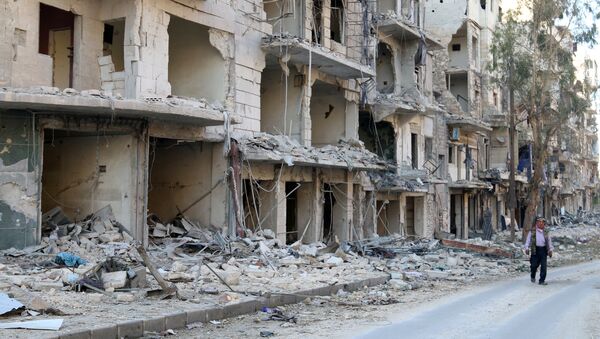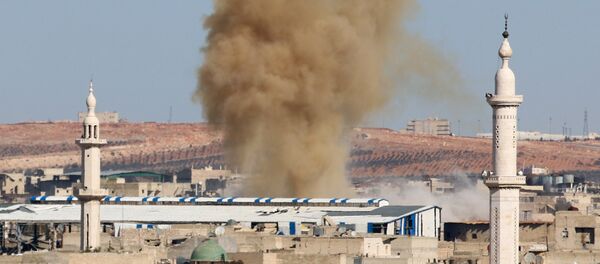The Syrian Arab Army (SAA) and its local allies are slated to free eastern neighborhoods of the city, the commercial heart of the country prior to the war, the researcher said. This will most likely result in "one of the biggest symbolic and territorial defeats" to the armed rebels, he added.
Setbacks in Aleppo have been detrimental to rebel unity. Their "coordinated front" is "now crumbling like a [house] of cards and is desperately fighting its own self" to keep the city under control, Salman Rafi Sheikh said.
"Failure to hold onto the city has initiated a [self-destructive] process, forcing the bigger rebel groups to swallow the smaller groups and bring more territory under their control, and thereby find more recruits for future fighting," the analyst explained.

This process has apparently been set in motion when a coalition of several radical groups "failed to sustain the counter-siege they had initiated for the part of the city under the Syrian army's control," he added.
Salman Rafi Sheikh referred to this infighting as "a fatal blow" to the rebels, adding that they have apparently started to use tactics which could alienate their foreign sponsors.
The analyst further said that Donald Trump's victory in the US presidential election could also be bad news for the rebels since the next US administration could well focus on cooperating with Russia to destroy Daesh and will be less willing to support radical groups, opposed to Assad.
"With the fall of Aleppo, rebel activity in the northern part of Syria will be crippled to a great extent," he noted. "With the regime in control of the capital of Damascus and Aleppo, the perception is likely to grow among the people of Syria who are still disconnected with their government that the forces supporting Bashar al-Assad are on the path to defeating the opposition."




